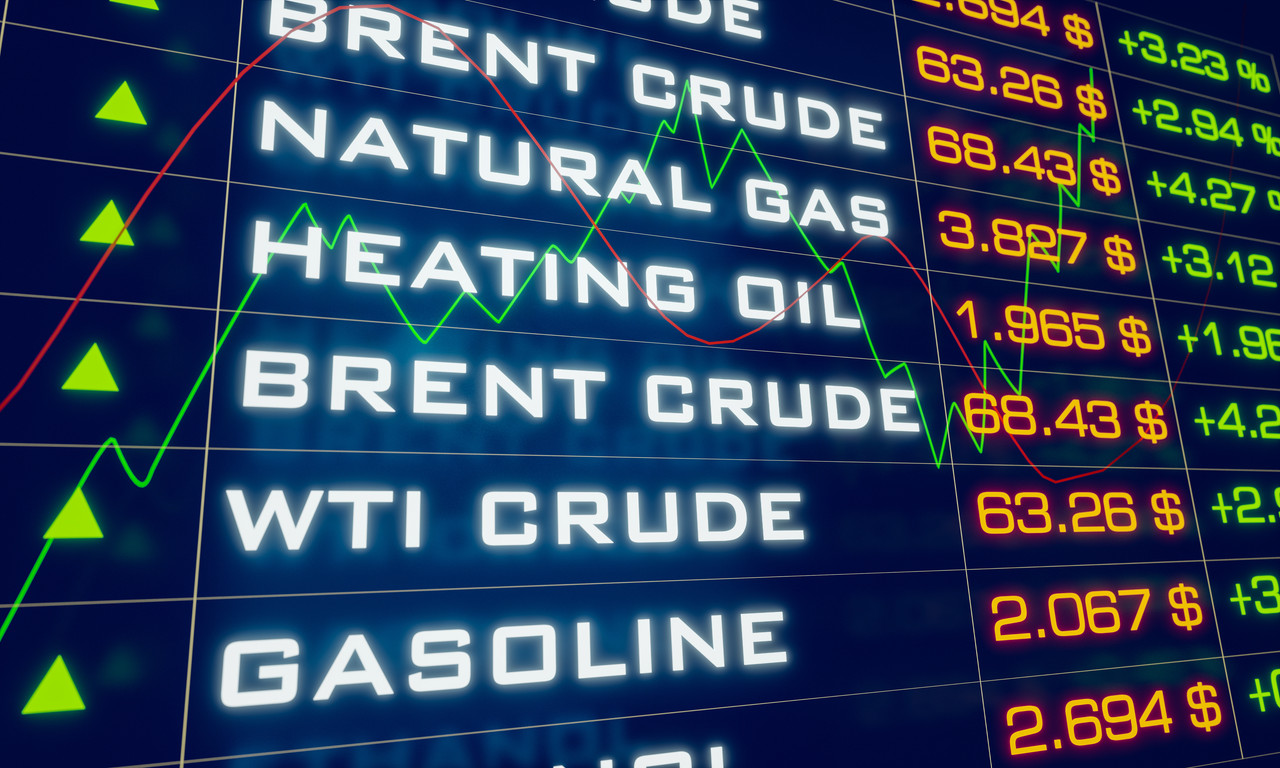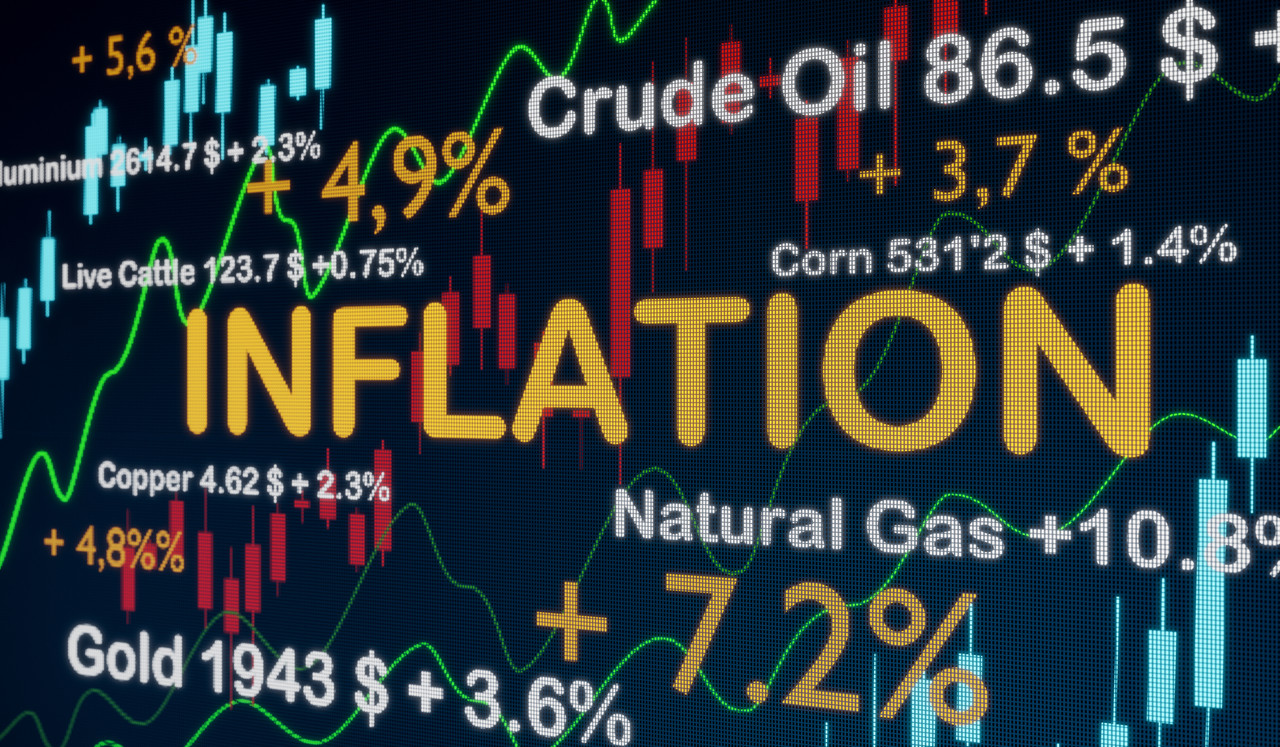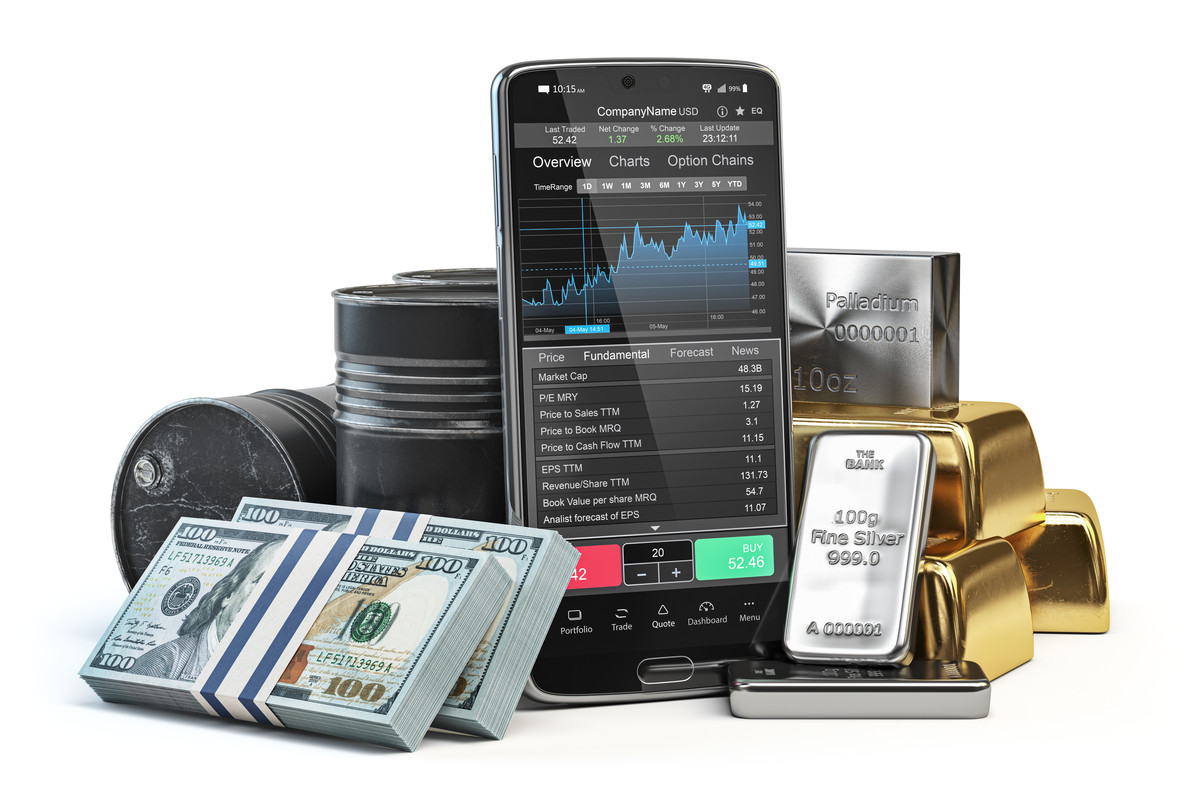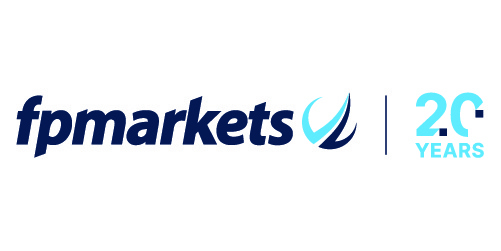Best Online Brokers for Commodity Futures Trading July 2025
Top Commodity Futures Trading Platforms: Trade Crude Oil & More, Choose Best Brokers, Open Account & Excel!
Why are the broker reviews on Economies.com the best and most reliable?
With over 15 years of experience in the trading world, we help our users avoid scam websites and brokers. Our broker rankings are based on several factors. We provide transparent and unbiased analyses, applying the same approach in broker rankings to ensure accurate and reliable information, enabling you to make safe trading decisions.
Best Commodity Trading Platforms 2025
- Pepperstone - Best overall commodity futures trading broker for beginners. Founded 2010. Multiple regulated licenses. Minimum deposit: $0. 20% discount on deposit.
- FPMarkets - Established 2005. Multi-regulated broker offering low spreads and fast execution. Minimum deposit: $100.
- Plus500 - Best licensed broker for investing in commodity futures. Founded 2008. Multiple regulated licenses. Minimum deposit: $100.
- XM - Top commodity futures trading platform for educational materials and copy trading. Founded 2009. Multiple regulated licenses. Minimum deposit: $5. Periodic competitions and bonuses.
Summary: Best Commodity Trading Brokers
| Broker | Rating | Best For |
|---|---|---|
| Pepperstone |
4.5/5
|
Best Commodity Trading broker offering advanced Commodity Trading tools |
| FPMarkets |
4/5
|
Best commodity broker offering robust trading tools and low spreads |
| XM |
4/5
|
Best platform especially for trader education and training |
| Plus500 |
3.5/5
|
Best Commodity Trading broker with a user-friendly interface |
Compare the Best Commodity Trading Brokers
| Broker | Trade | Special Features | Regulation | Account Types | Leverage | Spread | Minimum Deposit | Trust Score |
|---|---|---|---|---|---|---|---|---|
| Pepperstone | Trade | Fast execution, tight spreads on major commodities | ASIC, FCA, CySEC, BaFin, CMA, DFSA, SCB | Standard, Razor | Up to 1:400 | From 0.0 pips | $0 | 9.5/10 |
| FPMarkets | Trade | Competitive spreads, wide range of instruments | ASIC, CySEC, CMA, STV, FSCA, FSA | Standard, Raw, Islamic | Up to 1:500 | From 0.0 pips | $100 | 9/10 |
| XM | Trade | Wide range of commodities, loyalty program | IFSC, CySEC, ASIC | Micro, Standard, Zero, Ultra | Up to 1:888 | From 0.1 pips | $5 | 9/10 |
| Plus500 | Trade | Easy-to-use platform | FCA, CySEC, ASIC, FMA, CFTC | Retail, Professional | Varies | From 0.6 pips | $100 | 9/10 |

What are commodities?
There are four main categories of commodities: precious metals, ores and metals, agricultural products, and energy.
- Agricultural products: Agricultural products are raw materials that are considered renewable since they can be grown every year.
- Energy: Energy is also a commodity. It is divided into two categories: non-renewable energy such as fossil fuels (oil, coal, etc.) and renewable energy such as green energy (wind, solar, etc.).
- Precious metals: Precious metals are also commodities. They are non-renewable. This corresponds to gold, silver, palladium, and platinum.
- Ores and metals: Finally, ores and metals such as lead, nickel, aluminum, copper, zinc, steel, and cobalt are also considered commodities.

Best Brokers for Commodity Trading
- FPMarkets - Top Choice for Commodity Trading.
FPMarkets provides top-tier access to precious metals, energies, and other commodities. Enjoy competitive spreads, leverage up to 1:500, and advanced charting tools on MT4/MT5 platforms, making it a perfect choice for both short-term and long-term commodity traders.
- Plus500 - the best trusted and licensed commodity trading broker.
Plus500 offers an advanced trading environment for commodity trading, making it a preferred choice for traders looking for diversity in trading products and high security.
- XM - the best reliable platform suitable for beginners in commodity trading.
XM excels in commodity trading by offering comprehensive educational materials and webinars focused on commodity trading strategies. XM offers diverse commodity trading opportunities through CFDs, enabling traders to efficiently capitalize on commodity market opportunities. With strong technical support and user-friendly trading platforms, XM is a great choice for those looking to enter the commodity trading world.
FPMarkets
Trade Commodities with Multi-Regulated Broker FPMarkets. Access gold, silver, crude oil, natural gas, and more. Enjoy tight spreads, fast direct execution, and advanced technical analysis tools. Benefit from 24/7 support and multiple deposit/withdrawal methods.
| Licenses | ASIC, CySEC, CMA, STV, FSCA, FSA |
| Minimum Deposit | $100 |
| Available Commodities | Gold, Silver, Oil, Natural Gas, and more |
| Trading Platforms | MT4, MT5, WebTrader |
| Leverage | Up to 1:500 (depending on instrument) |
| Customer Support | 24/7 (Multilingual) |
| Account Types | Standard, Raw, Islamic |
Cons
- Some commodities might have higher overnight fees
Pros
- Wide range of commodity markets
- High leverage and tight spreads
- Advanced trading and analysis tools
- Multiple account types and Islamic options
Plus500
Commodity Futures are available for trading at Plus500 for US residents only.
| Licenses | FCA, CySEC, ASIC, CFTC |
| Minimum Deposit | $100 |
| Trading Platforms | WebTrader, Windows 10, Mobile Apps |
| Assets Coverage | CFDs on: S&P 500, Crypto, Forex, Stocks, Commodities, Indices |
| Customer Support | 24/7 |
| Account Types | Standard, Professional |
Cons
- Lack of physical ownership of the commodities
Pros
- Customer support in different languages
- Licensed and reliable
XM
XM is one of the leading companies in commodity and precious metal trading, with a strong commitment to providing a transparent and secure trading environment. XM offers its clients access to a wide range of educational resources and trading tools to support traders at all levels, including beginners and experts, making it an excellent choice for those looking to explore commodity trading opportunities.
| Licenses | CySEC, ASIC, IFSC |
| Minimum Deposit | $5 |
| Trading Platforms | MT4, MT5, WebTrader |
| Assets Coverage | Forex, CFDs, Stocks, Commodities, Cryptocurrencies, Indices |
| Customer Support | 24/7 |
| Account Types | Multiple, including Islamic accounts |
Cons
- Some accounts have high fees
Pros
- Educational materials for traders
- Easy deposit and withdrawal
- Customer support
- Immediate exposure to global economies
Why Trade Commodities?
Commodity prices and stock market fluctuations are linked by a very complex relationship. In fact, when the stock markets fall, the value of many commodities that are considered risk-free investments rise.
This is especially true for gold, but also for all other precious metals, which generally rise in value when stock market indices fall. Conversely, when stock markets fall, the price of many commodities such as oil falls. This is due to the decline in demand in this sector.
Commodity prices are essentially based on the issue of supply and demand. These two fundamental concepts are, for commodities, influenced by several factors.
- Commodities are indispensable in our daily lives, which strongly influences the demand for this asset class.
- Commodities offer multiple interests in a portfolio:
- First, they do not work in the same way as stocks and bonds. Therefore, they can help you diversify your stock portfolio.
- Commodities represent an effective protection against the risk of inflation.
- Certain precious metals such as gold, silver or palladium are safe havens. When markets are unstable or fall sharply, the price of these metals tends to rise. They therefore play a regulating role in the portfolio.
- Finally, some commodities, such as oil, offer considerable profit potential because of their scarcity and their indispensability to the modern economy. But some risks are involved too.
How to trade commodities?
Investors and traders who wish to invest in commodities have several options. They can buy the commodities themselves, futures contracts, shares of the companies that produce them and even ETFs.
Invest directly in commodities
This is certainly the most difficult method and only makes sense in the case of metallic commodities. Indeed, it is not a matter of filling up with fuel at the local gas station to sell it to your neighbors at a few euros more after a few months.
It is rather a question of obtaining ingots of precious metal (gold, platinum, etc.) for example, and then keeping them yourself or by calling on specialized people.
Investing through individual stocks
One way to invest indirectly in commodities is to buy shares in companies that specialize in the production, extraction or processing of commodities.
An increase in the value of raw materials results in an increase in the selling price of the products. When production costs remain the same, profitability increases. However, stock prices are also influenced by various company factors. They are also influenced by major geopolitical and ecological issues.
Investing through ETFs or mutual funds
ETFs are index funds that track their benchmark index. They allow the independent investor to invest in oil, gold, wheat or any other commodity with ease.
UCITS are active management funds, some of which are specialized in commodities. They allow you to invest in this field while entrusting the responsibility of management and choice of securities to a professional specialized in commodities.
Investing through derivatives
Derivatives, where the underlying asset is a specific commodity (e.g. wheat, gold, oil, coffee, etc.) or set of commodities (e.g. grains), offer the opportunity to speculate on the movement of these assets. In particular, it is possible to invest in commodities through CFDs, futures or forwards.
Naturally, these are intended for short-term investments and are only for experienced traders. They know how they work and are careful about the leverage that often accompanies them.
Various markets offer specific futures contracts on agricultural commodities, including the Chicago Board of Trade (CBOT), and the Paris Bourse. Agricultural commodity futures contracts are intended to provide farmers with a hedge when planting. They allow them to protect themselves from future fluctuations in the selling price of the commodity. Traders speculate on the rise or fall in the value of the underlying asset.
Other markets specialize in trading energy-related futures contracts. The New York Mercantile Exchange (also known as Nymex) is a market that specializes in trading energy futures contracts. These contracts include commodities such as crude oil, natural gas and electricity.
Precious metals are also traded on regulated brokers like Plus500. There, you can find various markets for trading precious metals, including the Chicago Board of Trade (CBOT), Nymex and the London Metal Exchange.
The benefits of investing in commodities
- A hedge against inflation: Over time, inflation lowers the real value of a currency. In other words, $10 today may be worth $9 in 5 years. In the USA, inflation recently hit a 40-year high of 9.1% in 2022. The direct consequence of inflation is that prices rise.
- Diversify your portfolio: Like stocks, bonds and real estate, commodities are another asset class that can help diversify investments. This diversification is a kind of prevention against poor performance of asset classes. It can help reduce the overall fluctuation of your portfolio.

Is it worth it to trade commodities?
Trading commodities offer investors an effective hedge against inflation, but also an excellent way to diversify their portfolio assets. Like stocks, commodity values are volatile and should be an integral part of a long-term investment strategy.
What is a commodity trading account?
Plus500 is considered one of the best brokers to offer trading accounts that incorporate commodities, such as gold, crude oil, etc.

What is the most popular commodity in the world?
Although crude oil comes in many forms, it is the most traded commodity in the world. West Texas Intermediate (WTI) crude oil and Brent crude oil are the two main ones, which are often used as references.
Articles

Commodities
Best Trading Signals for Forex, Gold, Oil, Stocks and Crypto - 2025
Best Trading Signal Provider: A Comprehensive Guide to Successful Strategies If you are looking ...

Commodities
How would a Kamala presidential win impact the oil industry?
Kamala Harris is the likely Democratic candidate for the upcoming November elections in the US, ...

Commodities
Will silver outperform gold in 2024 and which is the best platform to trade them?
Silver Analysis and Silver Price Predictions for 2024 and 2025 Compared to Gold Silver prices ...

Commodities
Will gold prices scale $3000 an ounce in 2024?
Gold prices continued to move in a positive zone and approached the record highs scaled last week ...
News

Commodities
Oil prices little changed before OPEC+ decision
Oil prices were little changed on Tuesday as investors assess the outlook that OPEC+ will announce ...

Commodities
Gold expands gains as the dollar falls
Gold prices rose in European trade on Monday on track for the second profit in a row, trading above ...

Commodities
Oil marks monthly profit but quarterly loss
Oil prices dropped on Monday as tensions receded in the Middle East with increasing speculation ...
Analysis

Commodities
Forecast update for Gold -01-07-2025
The price of (Gold) extended its gains in its last intraday trading, to exit the range of bearish ...

Commodities
Forecast update for silver -01-07-2025
The price of (silver) rose in its last intraday trading, to keep moving alongside a minor bullish ...





